Meet our 2018 Health Sciences Research Week Student Researchers
Our students are given the opportunity to participate in research during their time as medical students. This exposure to training in scientific thinking is an experience that enriches their medical education and prepares them for their future careers.
Every Spring our students complete a research project to showcase their studies during Health Sciences Research Week. Learn more about some of our students’ research and how it has benefitted their medical education.
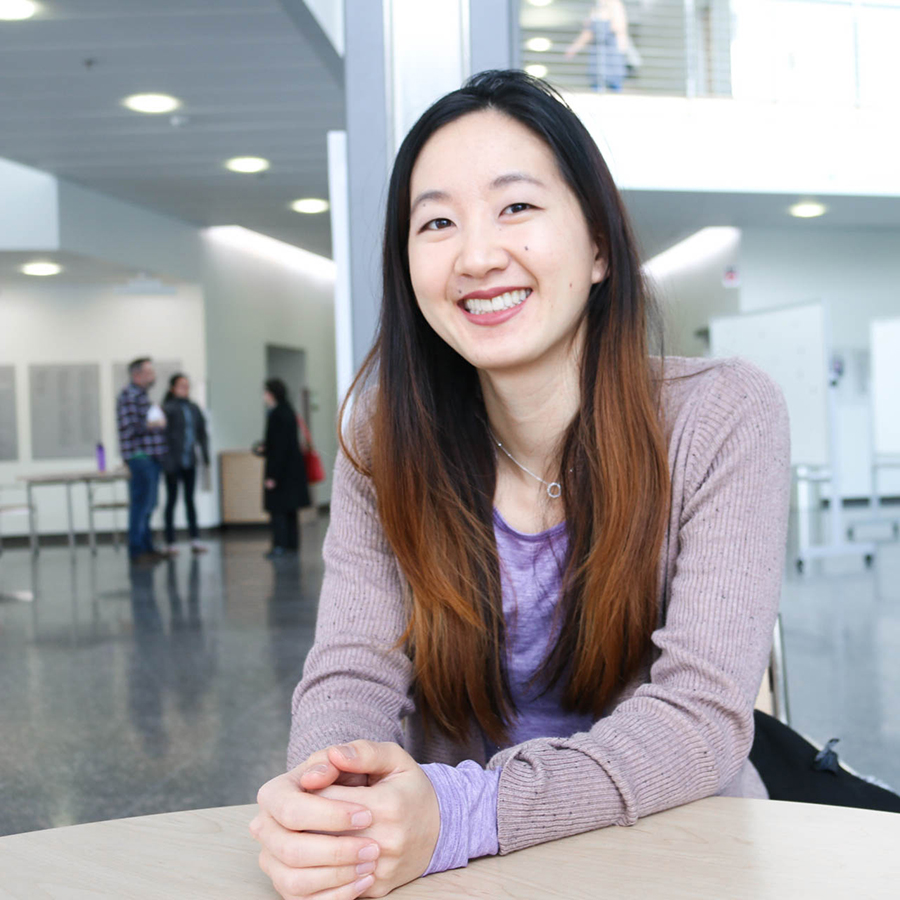 Evelyn Qin, M3
Evelyn Qin, M3
Hometown: Ames, Iowa
My most recent research has been focused on lymphedema diagnosis and evaluation through the use of tools such as bioimpedance analysis and indocyanine green lymphography. The purpose of this research is to improve lymphedema diagnosis and assessment so providers can manage the symptoms and provide therapies more efficiently and effectively.
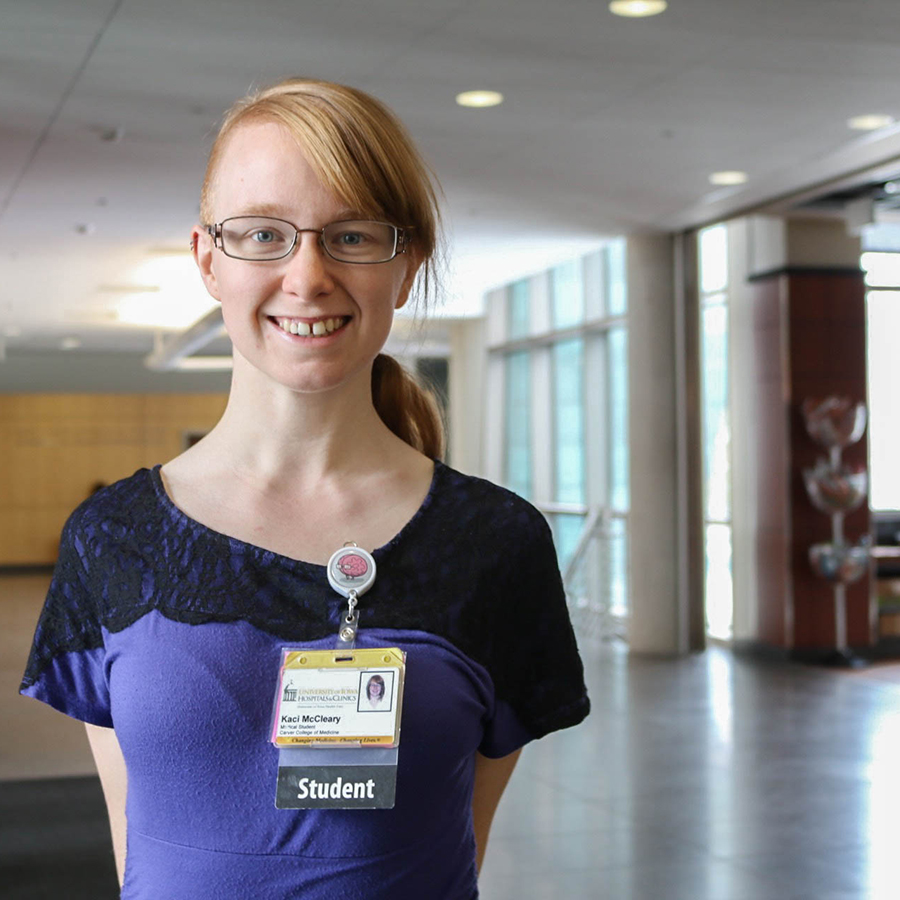 Kaci McCleary, M4
Kaci McCleary, M4
Hometown: Newton, Iowa
I did a large chart review comparing operational and safety outcomes for different anesthetic agents used in the Wada procedure, which is a test to localize language and memory in patients considering surgery for medically intractable epilepsy. After that was finished, I started another project comparing long-term neurobehavioral outcomes for patients with organic epilepsy versus psychogenic spells. That project is still in progress and will hopefully be passed on to a younger student before I graduate.
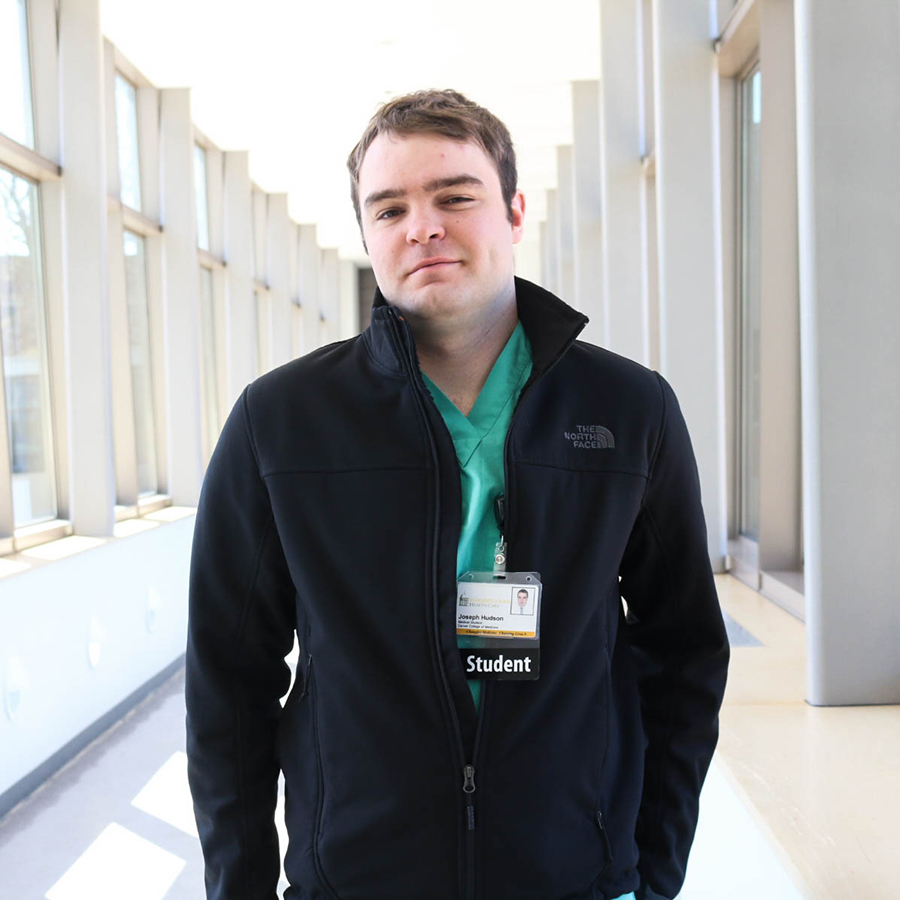 Joseph Scott Hudson, M3
Joseph Scott Hudson, M3
Hometown: Cedar Falls, Iowa
In the department of neurosurgery we always have multiple projects running simultaneously! Our group has published several recent papers regarding the neurosurgical and endovascular management of patients with cerebrovascular disease. We have developed a microwave imaging device (helmet) to help differentiate ischemic from hemorrhagic stroke in the ambulance, with the ultimate goal of administering clot busting medication in the field.
Currently we are evaluating a novel MRI sequence that may potentially detect intracranial aneurysms associated with sentinel headache that are more prone to rupture. Simultaneously we are beginning to look for biomarkers in the blood that may help identify degenerating intracranial aneurysms. Finally, our group is utilizing computational fluid dynamics to predict aneurysm recurrence after endovascular treatment with Pipeline flow diverters.
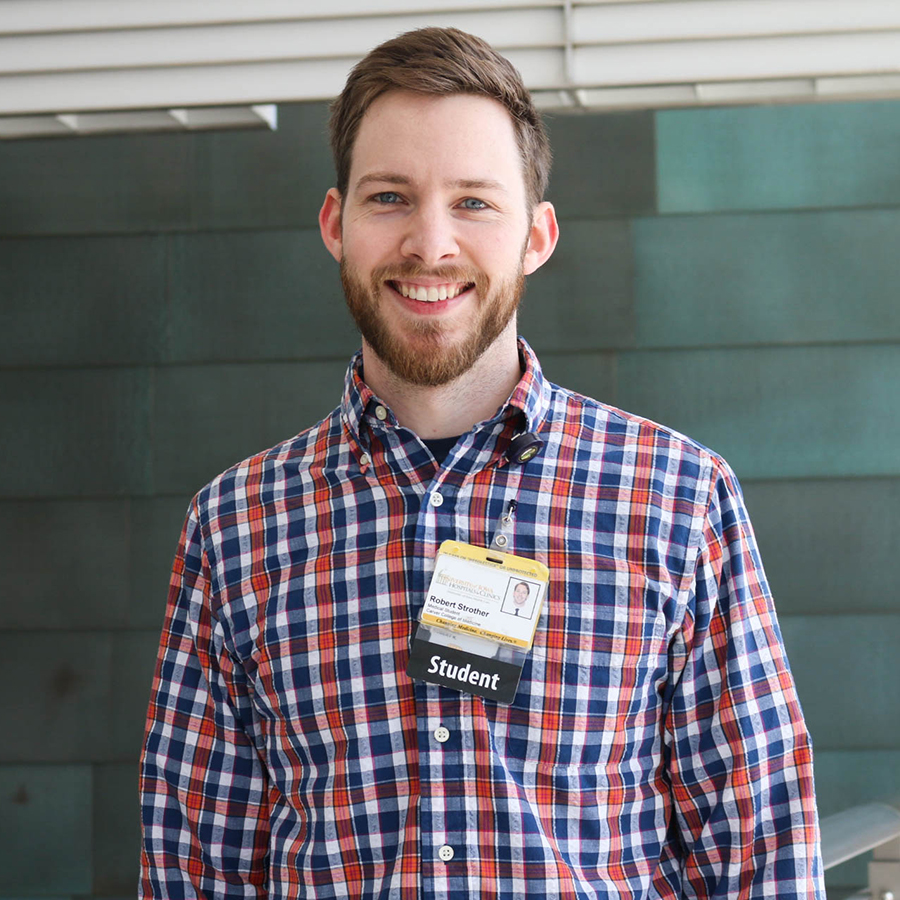 Robert Strother, M4
Robert Strother, M4
Hometown: Union, Iowa
Sepsis is a major cause of morbidity and mortality. Furthermore, those that survive sepsis often have changes in their underlying immune function that renders them more susceptible to infection. The Badovinac Laboratory, the lab in which I worked, demonstrated that sepsis leads to decreased CD8 T cell responses after sepsis.
My project investigated how sepsis affects antigen presenting cells called Dendritic Cells and whether Dendritic Cells play a role in decreased CD8 T cell responses after sepsis.
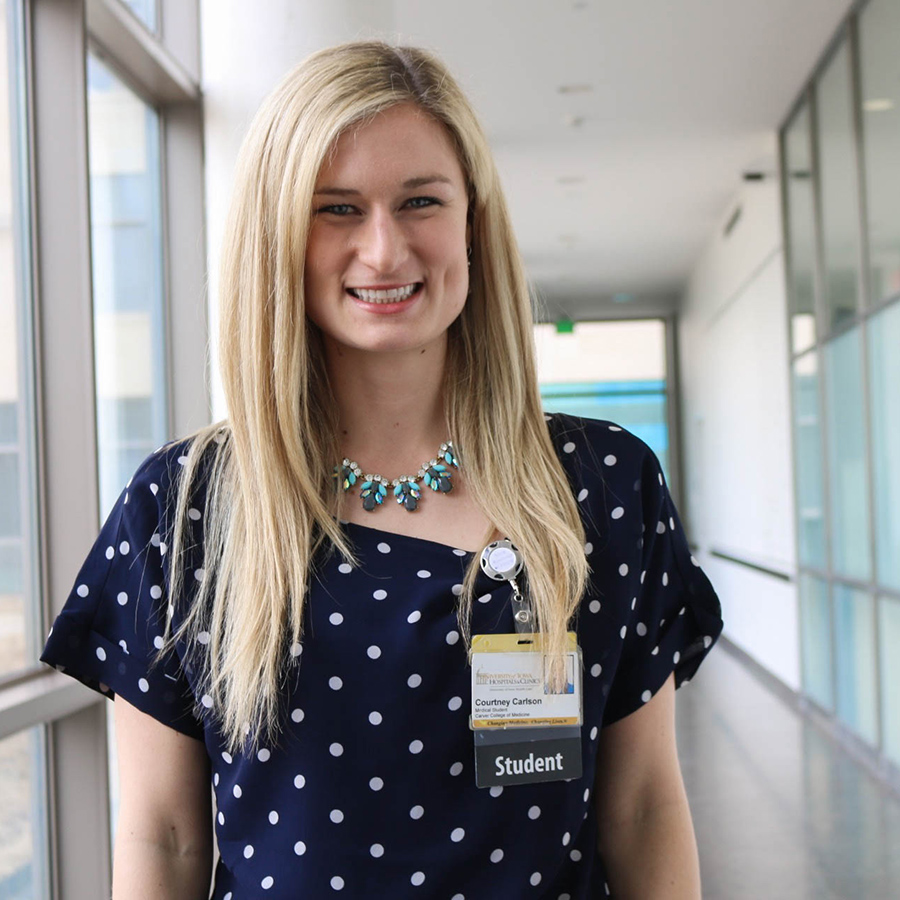 Courtney Carlson, M4
Courtney Carlson, M4
Hometown: Ankeny, Iowa
I did a year-long research fellowship through the Wellstone Muscular Dystrophy Fellowship program from July 2016 - June 2017. I worked on 3 projects that year examining different aspects of muscular dystrophy. In one project, we examined a phenomenon where patients with dystroglycanopathy (a form of muscular dystrophy) become acutely and transiently weak following a febrile illness. Another project I worked on examined the indications for muscle biopsy in patients suspected of having Duchenne Becker muscular dystrophy. The third project I worked on examined the development of contractures in wheelchair bound patients with Duchenne muscular dystrophy.